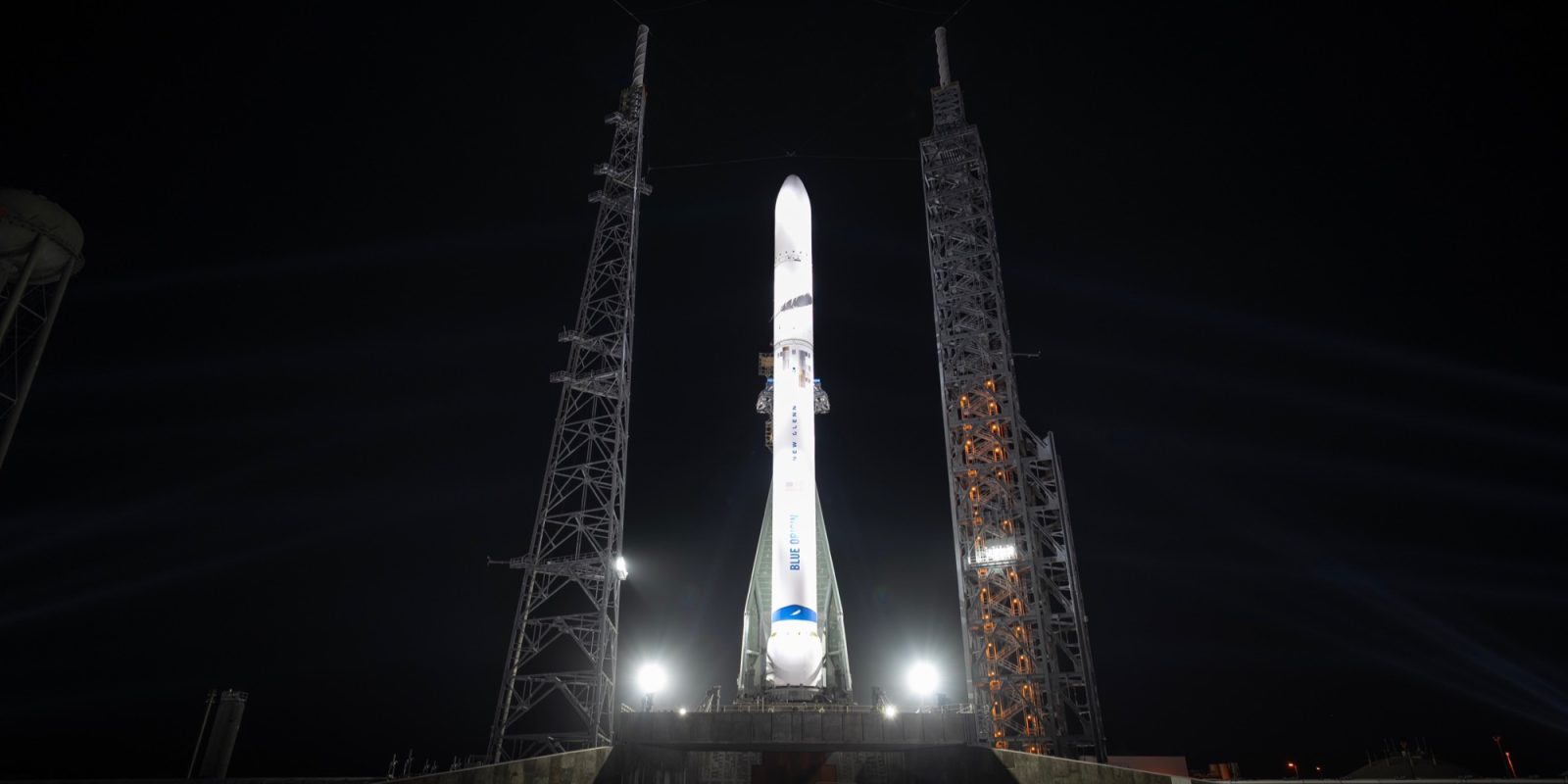
Last night, or early this morning, Blue Origin scrubbed its first New Glenn launch attempt after about two hours of troubleshooting problems and takes the cake for arguably the worst launch stream ever produced. Also taking place this week, Sierra Space‘s CEO departed the company without any previous announcement or reason, sparking speculation.
Checkout the podcast version of Terminal Count here.
This Week’s Launches
- Monday (January 13)
- SpaceX | Falcon 9 | Starlink Group 12-4 | 10:08 A.M. ET
- SLC-40, Cape Canaveral Space Force Station, Florida
- SpaceX | Falcon 9 | Starlink Group 12-4 | 10:08 A.M. ET
- Tuesday (January 14)
- SpaceX | Falcon 9 | Transporter-12 | 10:49 A.M. PT
- SLC-4E, Vandenberg Space Force Base, California
- SpaceX | Falcon 9 | Transporter-12 | 10:49 A.M. PT
- Wednesday (January 15)
- SpaceX | Falcon 9 | Blue Ghost + Hakuto-R | 1:11 A.M. ET
- LC-39A, Kennedy Space Center, Florida
- SpaceX | Starship | Flight 7 | 4:00 P.M. CT
- Pad A, Starbase, Texas
- SpaceX | Falcon 9 | Blue Ghost + Hakuto-R | 1:11 A.M. ET
- Friday (January 17)
- SpaceX | Falcon 9 | Starlink Group 11-8 | 7:18 P.M. PT
- SLC-4E, Vandenberg Space Force Base, California
- SpaceX | Falcon 9 | Starlink Group 11-8 | 7:18 P.M. PT
In the news…
Rocket Lab Neutron rocket signs VADAR launch contract with NASA, allowing it to bid on NASA missions. This is the entry-level launch contract system that gives NASA access to cheaper access to orbit while accepting higher levels of risk on unproven launches. [Rocket Lab]
SpaceX delays Starship to January 15 due to poor weather. The weather continues to be a problem for SpaceX as future conditions could push the launch date even further. [Space Explored]
Florida Governor suggested NASA should move its headquarters to the Space Coast, since everything it does ends up on a rocket there anyway. While good for Florida, a move would likely be impractical for the agency, but it does raise the question of whether all of NASA’s senior leaders need to be in DC, or can they move closer to the their department’s operations. [Space Explored]
The Balearic Islands, a European tourism hot spot, will launch its first satellite to help track its climate. Being constructed by Open Cosmos, a bulk of the funding came from local hotels as climate change could radically affect the region’s primary source of income, tourism. [Payload Space]
Blue Origin scrubs New Glenn launch attempt
In what had to be one of the most bizarre launch streams I’ve seen in recent years, Blue Origin ended up scrubbing its first launch attempt of its New Glenn rocket early Monday morning. No reason for the scrub was given, which was true for most of the countdown, as no reasons were ever provided as to why the launch countdown kept getting pushed back.
The official reason given by Blue Origin for the scrub was “to troubleshoot a vehicle subsystem issue that will take us beyond our launch window.” Ars Technica states the issues could have been with frozen vent lines that blocked pressurized gas from leaving the vehicle.
Blue Origin did not state a new launch date, which could mean a longer than expected delay. Ars’ report states that Blue Origin attempted to melt the ice multiple times, but to no avail.
While there’s no reason you will need to watch the stream back, as its programming will likely be repeated during New Glenn’s next launch attempt, you can’t. Blue Origin privated the stream shortly after the scrub was announced.
Sierra Space CEO retires… fired?
Sierra Space announced the departure of its CEO, Tom Vice, on January 6. According to the statement, Vice retired at the end of the year; however, no reason for the retirement was given. Eric Berger shared that he was tipped Vice was fired instead of leaving on his own accord.
Vice has served as the CEO of Sierra Space since it was spun out of Sierra Nevada Corporation three and a half years ago. Since then, the company has grown significantly with multiple new partnerships, including building Orbital Reef with Blue Origin, satellite manufacturing contracts with the Space Defense Agency, and the Air Force Research Lab for orbital delivery.
However, its primary focus has been to get Dream Chaser, a reusable orbital spaceplane, off the ground and begin completing resupply missions for NASA to the ISS. The vehicle was supposed to fly for the first time on ULA’s second Vulcan mission but was replaced with a mass simulator in order for ULA to meet its 2024 certification goal (it didn’t, by the way).
Whatever the circumstances of Vice’s departure were, for now, Sierra Space will be led by Fatih Ozmen, who is the CEO of Sierra Nevada, until they find a new CEO to replace Vice permanently. The company still hopes to launch Dream Chaser in 2025 while also advancing its other technologies along the way.
FTC: We use income earning auto affiliate links. More.



Comments